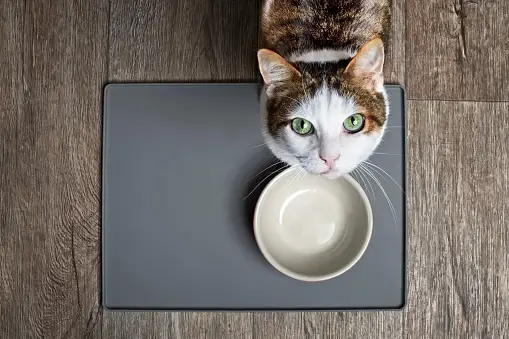Is Your Pet Struggling with New Food? Discover the Telltale Signs
Identifying pet food adjustment issues made simple.
Switching your pet's diet isn't always as smooth as we'd like. Here are some clear signs that your furry friend might be having trouble adjusting to new food.
1. Digestive Upset
When transitioning to a new food, gastrointestinal disturbances are common. Look out for:
- Diarrhea or Constipation: If your pet experiences sudden changes in bowel movements, it might indicate that their stomach is struggling with the new ingredients.
- Vomiting: Consistent vomiting after meals is a red flag. It suggests that your pet's system isn't agreeing with certain elements in the new diet.

2. Loss of Appetite
A noticeable decrease in appetite can be a strong indicator that your pet is not fond of the new food.
- Sniffing and Walking Away: If your pet sniffs their bowl and leaves without eating, it's a clear sign they're not interested.
- Skipping Meals: Regularly missing meals is concerning and suggests that the food is unappealing or causing discomfort.

3. Changes in Energy Levels
Your pet's energy levels can reveal a lot about their comfort with new food.
- Lethargy: A drop in activity levels might mean that the food isn't providing adequate nutrition or that your pet feels unwell.
- Hyperactivity: Conversely, an unusual spike in energy can also signal dietary intolerance or sensitivity.

4. Skin and Coat Issues
A healthy diet reflects in your pet's skin and coat. Signs that suggest trouble include:
- Itching and Scratching: If your pet starts scratching excessively, it could be due to an allergic reaction to new ingredients.
- Dull Coat: A lack of shine or unexpected hair loss could indicate poor nutritional absorption from the new food.

5. Behavioral Changes
Watch for shifts in behavior as they might be linked to dietary discomfort.
- Increased Aggression or Irritability: If your pet becomes unusually aggressive or irritable, it could be due to discomfort caused by their diet.
- Restlessness: Pacing or inability to settle down can reflect gastrointestinal discomfort or energy imbalances.

6. Weight Fluctuations
Unexplained weight loss or gain can be a sign that your pet's new diet isn't suitable.
- Weight Loss: If your pet is losing weight without a change in activity levels, it might not be getting enough calories or nutrients.
- Weight Gain: Sudden weight gain can indicate that the new diet is too rich or high in calories.

Switching your pet's diet requires careful observation. If you notice any of these signs, consult with your veterinarian to ensure your pet's well-being. A smooth transition is vital for maintaining your furry friend's health and happiness.
By keeping an eye on these indicators, you can better support your pet through dietary changes and ensure they remain healthy and happy.

